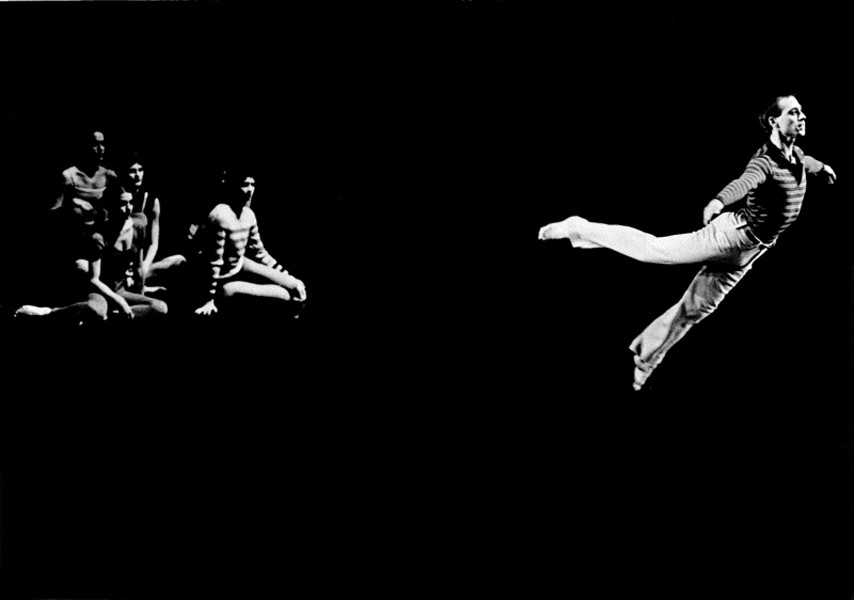AnOther's Classical, Opera & Contemporary Music columnist Sir Norman Rosenthal, picks his highlights for October including a chance to see the legendary composer and conductor Pierre Boulez and Merce Cunningham Ballet Company before they return to
The other day at the start of London Fashion Week, Jefferson invited me along to a party at the photographer Rankin's Studio in Kentish Town. So I dressed up a bit for this evening of youth and beauty, and with a young very talented sculptor friend, Mohammed Qasim Ashaq, who shows at Hannah Barry's, got myself there. I saw a good exhibition of fashion photography, and then the music started. The volume was so staggeringly deafening that I knew that if I stayed a moment longer I would literally damage my ear drums irreparably – and that might have been the end of this column!
This month, as usual, there is endless great music – modern and old – going on in London. I sincerely hope you caught the legendary composer and conductor Pierre Boulez conduct his longest single piece of music, Pli Selon Pli at the Southbank this weekend. His music is a ravishing and endlessly stimulating sound-world that still is provocative to many - at once angry and refined. The other great legend making a rare appearance in London with the Lucerne Festival Orchestra on October 10-11, also at the Festival Hall is the 78-year-old Claudio Abbado, one of the very greatest conductors to have emerged after the 1960s. Having been diagnosed with cancer in 2000, he now seems to be in reasonable health again and by common consent, his performances are all suffused with an immense humanistic spirituality, as though every piece of music making were his last. Conducting the Viennese late 19th century composer Bruckner's 5th Symphony should be an experience not to be missed under any circumstances. I urge you to queue for returns.
Two great charismatic and glamorous singers are giving recitals. On the October 7, the very plush and deep Olga Borodina is singing Russian songs at the Barbican Centre and the heart-throb tenor Jonas Kaufmann is singing opera excerpts at the Royal Festival Hall on October 24. As for opera itself, English National Opera have three compelling performances ahead. The Passenger by Miecyslaw Weinberg, a Polish/Russian composer, is set in Auschwitz, and has already had rave reviews. Mozart's Marriage of Figaro (it is the opera I would favour above all others – no other piece delves more deeply into human realities, in spite of being a comedy) is getting a new production by Fiona Shaw, the great Irish actress and director. And towards the end of the month, Castor and Pollux is an opera by the early 18th century composer, Rameau, roughly speaking, the French contemporary of Bach and Handel, but very different to them in style. Certainly in England, rarely performed, but in a production that concerns the two heavenly twin brothers, and hailing from my favourite opera house in the world, the Komische Oper in Berlin, where innovative opera productions were invented both in the 1930s and then later from the 50s onwards, should make for an exciting evening of singing and dance.
The Royal Opera House in comparison is more 'conservative' in its choice of operas being performed, but I don't want to miss Gounod's Faust, with Angela Gheorgiu, La Traviata, with my favourite young soprano, Marina Poplovskya, or Wagner's The Flying Dutchman, conducted by Jeffrey Tate, a musician feted in Europe, but who gets far too few dates here. He is a very special individual.
Many more good symphony concerts. The Orchestra from Leipzig in Germany, said to be the oldest orchestra in the world, is doing a residency at the Barbican, playing all Beethoven's symphonies, which should be a rich experience. The young and talented French conductor, Yannick Nezet-Seguin, is conducting Schubert's great 9th Symphony – a work of seeming heavenly infinity – on October 12, and on October 15, Rossini's Stabat Mater, where in his own fashion, the great Italian composer of comic and tragic operas, portrays the mother of Christ weeping for her crucified son. On October 18-19, at the Queen Elizabeth Hall, the Takacs Quartet will give what will surely be definitive performances of all six Bartok works for string quartet, whilst on October 15 at the Barbican there will be a performance devoted exclusively to the music of the great American Minimalist composer, Steve Reich.
In that context, it is worth remembering that on October 5-8, the legendary American Merce Cunningham Ballet Company are giving their final UK performances at the Barbican before disbanding in New York at the end of the year. Merce collaborated primarily with John Cage, but there is certainly an affinity with New York minimal music that will make these two almost concurrent events illuminate each other. Lovers of Renaissance music should check out individual concerts being devoted to the music of the Italian Monteverdi (Union Chapel, October 13) and the Englishman William Byrd (Wigmore Hall, October 7).
Finally, a plug for the music colleges of London, and their public performances, (if not free, then always good value for money) particularly here the Royal Academy of Music near Baker Street station. Their continuing cycle on occasional Sunday mornings of all the Bach cantatas, already attracts very large audiences. They also do opera performances to a very high standard. This month, a double bill including Benjamin Britten's Curlew River, October 6-7, as well as an opera by the English 20th Century composer, Vaughan Williams, who died in 1958, called Riders to the Sea, based on the tragic play about Irish sailors by the writer, J.M. Synge.
Norman Rosenthal spent more than thirty years as director of exhibitions at the Royal Academy of Arts. Since he was nine-years-old, he has been haunting London's many concert and opera venues, large and small, absorbing classical, opera and contemporary music, all of which he enjoys in equal measure.
